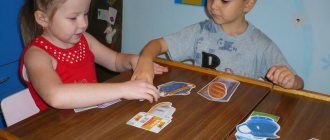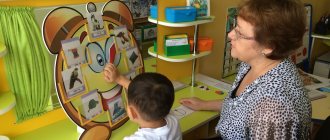Article:
There are more and more children with speech problems.
Therefore, parents are increasingly turning to a speech therapist for help. Most believe that they do not need to do anything - let a specialist handle the correction. But the effectiveness and success of classes depends on how accurately parents follow speech therapy recommendations. There are also preventive measures to prevent the occurrence of speech disorders. The advice of a speech therapist is needed not only by parents, but also by educators and teachers. Because they can include in their classes some exercises for speech development and sound pronunciation correction. Usually the specialist draws up a memo in which he gives general recommendations and individual advice for each speech defect.
General recommendations
To ensure that a preschooler does not have difficulties with sound pronunciation, articulatory gymnastics should be performed every day. All it takes is 10 minutes. The baby is asked to pronounce vowel sounds, while you form the basic position of the lips and a strong, long exhalation.
In addition to these exercises for the lips, include tasks for the tongue (hold it on the lower lip, raise and lower it, move it from side to side). When the child gets older, include more specific exercises to form the necessary groups of sounds. The very first baby masters the articulation of whistling, then hissing and sonorant sounds.
Do finger exercises with your baby, do applique work with him, teach him how to use scissors. Use all types of activities in which differentiated finger movements are formed. Buy clothes with buttons and laces - this has a beneficial effect on the development of finger motor skills, which also affects speech development.
While reading, use intonation and read with expression. Be sure to ask your child what you read about and what he liked. You don’t have to finish reading the sentence, but invite the child to come up with a continuation himself. Encourage his imagination.
Be sure to monitor the quality of your speech. Speak clearly and understandably so that the baby remembers the correct pronunciation of sounds.
There is no need to babysit with preschool children - this is normal when communicating with a baby. But as the child gets older, he begins to perceive such speech as the norm, which leads to the appearance of speech disorders.
A child’s communication with adults plays an important role in the formation of speech skills. Therefore, both parents and teachers should monitor their speech. And encourage your child to use it in every possible way. These are general recommendations that will help develop the necessary speech skills in your baby.
“FROM FOUR TO FIVE”: ADVICE OF A Speech Pathologist
Fifth year of life. The middle of Sadovo's childhood. It's just a stone's throw from school! How many thoughts, observations, anxieties and worries do parents of four-year-olds have: “Is the baby’s speech appropriate for his age?”, “Is it scary that the child is burring?” Should I go to a speech therapist or wait a little longer” and – most importantly – “How to talk to your son or daughter so that their speech becomes richer? What games should I play?
The answer to the first questions will be given by a consultation with a speech therapist. The specialist will assess the baby’s speech status and tell you about the normal indicators of language development.
But teaching speech in the family, day after day, is not an easy task. After all, the older a child gets, the more impact the world around him has. And the more responsibility fathers and mothers, grandparents have. In the hands of the family there are powerful levers of education and development, the opportunity to stimulate children's speech, guide and improve it.
What can a speech therapist advise smart, patient and selfless parents?
♦ Read. We are sure that there are dozens of children’s books in your library, and you have already introduced your child to many of them. It's time to discuss what you read: are all the words clear to the baby in a well-known fairy tale, almost memorized by heart? Does he perceive its events and plot correctly? Slowly begin to retell: without this, the child will not develop free speech, the ability to coherently and competently express impressions and thoughts.
♦ “Accumulate words.” A chair, stool, table are furniture. You poured tea into a cup, and you will drink milk from a glass. There are other utensils in the kitchen. Mom works as a doctor, and dad is an engineer. Grandfather's profession is a carpenter. Do you know who this is? Draw your child’s attention more often to the objects and events that surround him. Let him name what he saw. This way you will not only expand your preschooler’s vocabulary, but will also be able to lay the foundation for the first “exams.” The fact is that this layer of knowledge: generic and specific concepts serves as one of the indicators of speech development. “Fruits”, “Vegetables”, “Domestic and wild animals” turn out to be part of some wise test, a test that the child takes in kindergarten and (or) when entering school.
Need a speech therapist for your child? Sign up for a consultation by phone or through the feedback form in the “Contacts” section.
♦ Prepare the child’s hand for writing. Of course, your son or daughter can hold a pencil and draw well. It's time to offer something new! Hatch and trace, continue patterns, print letters. Think about a baby table and children's first copybooks. Subtle finger movements improve speech!
♦ Pay attention to adjectives. There are not enough of them in the speech of almost all four-year-old children. The simplest and most effective task - “Name which one” - requires almost no effort (at least from parents): you show the hat and ask: “What is it?”, and the baby tries to pick out: “red”, “warm” , “soft”, “autumn”. What kind of car is it on the side of the road? What kind of ball?
You play, and the child learns to use epithets, words that truly decorate speech.
♦ Listen. Of course you are listening. The child speaks. Gradually, monologue will become a familiar thing for him. What's the weather outside? What happened in kindergarten? Away? Show keen interest, encourage a complete, widespread answer, clarify details and details, rejoice: the little person has grown so much that he can communicate, express in words the feelings overwhelming him.
♦ Conduct “grammar training” from time to time. The child must learn to use different forms of words and use endings correctly. Grammar is a complicated matter. But this is where the game comes to the rescue. Read the poem, and ask your child to finish the line:
At the hole, a gray one waits for prey, lurking... (cat). The mouse was left without a tail, escaping from... (the cat). And now he won’t even come a mile away from... (the cat). An old rat - and that one, Seeing the formidable... (cat), Runs into a hole under the house, So as not to meet... (the cat), There he trembles and in the dark Remembers... (the cat). (A. Grachev)
♦ Work on diction.
Introduce your child to special speech therapy gymnastics. Exercises for the lips, tongue, and lower jaw will help you say goodbye to “porridge in your mouth” and speak more clearly.
“Tube”: extend your lips and squeeze them together. “Funnel”: pull your lips into your mouth. “Smile”: stretch your lips in a smile. “Rinse”: puff out your cheeks and “rinse” your mouth with air. “Needle”: pull the narrow tongue forward. “Spatula”: place a wide tongue on the lower lip. “Swing”: stretch your tongue alternately towards the nose and chin. “Clock”: move the tip of the tongue from one corner of the mouth to the other (“tick-tock”). “Horse”: click while sucking your tongue to the roof of your mouth.
Pure sayings and nursery rhymes are already available to the child:
Uli has a fishing rod, Yana has an apple.
The hedgehog and the Christmas tree have pricking needles.
I am carrying berries, I picked them in the forest.
Turn to children's literature: its arsenal is truly inexhaustible!
♦ Develop auditory attention. They will learn to distinguish sounds, listen to them, and learn rhymes. Encourage your child to “write”. First he’ll finish the deal, later he’ll come up with it himself.
On Masha’s plate there is a lot of delicious sweet... (porridge).
So that your feet don’t freeze in winter, we’ll buy Misha... (boots).
We’ll go outside, we’ll take the ball with us... (take it).
By the way, young poets write excellent dictations at school.
We emphasize that the practical recommendations and exercises proposed here are traditional and widely used, and the effect of their use has long been proven. Love your child and remember: everything you gave him today, your efforts and time will be rewarded a hundredfold: with the child’s clean, beautiful, literate speech.
With deep respect, teacher-speech therapist of the highest qualification category
Afonina N.Yu. (Tula)
Do you need a children's speech therapist? Sign up for a consultation by phone or through the feedback form in the “Contacts” section.
When to contact a speech therapist
Parents can cope with some speech disorders that are not caused by underdevelopment of the speech centers of the brain on their own. A speech therapist will help you choose exercises in accordance with the individual characteristics of the child. The specialist will conduct a diagnosis and determine the structure of the speech defect. The success of correctional work depends on this.
A speech therapist works in a preschool educational institution, so most parents do not seek his help before the age of three. But if you notice that:
- The child’s first words and phrasal speech appeared much later than that of his peers;
- he does not speak;
- poorly understands spoken speech;
- does not seek to communicate with others;
- his speech is difficult for other people to understand.
In this case, consultation with a speech therapist is necessary. He may advise contacting other specialists if the child has a complex speech disorder and needs complex intervention.
Parents and speech therapist are partners
Parents and speech therapist are partners. A message from experience working with parents of children with disabilities.
The question that worries many teachers today, “how to more effectively organize work with parents,” has become even more relevant, only carrying out well-thought-out, rationally planned, coordinated and daily work with parents can achieve maximum correctional effect in a short period of time.
Many years of practice as a teacher-speech therapist allows me to talk about the increasing incidence of inaction on the part of parents towards children with deviations in speech development. About half of parents do not attach importance to the correct development of speech and “do not notice” pronounced speech difficulties.
Economic reforms have shaken the financial stability of many families, forcing parents to choose between parenthood and a career.
All these factors influencing families have a significant impact on the results of correctional interventions.
Today, family opportunities, social attitudes, and attitudes toward education and child upbringing are undergoing significant changes. Teachers and psychologists studying the modern family note a decrease in its educational and educational potential (Bestuzhev - Lada, I.V. Dobryakov, G.G. Leaders, G.G. Kravtsov, G.L. Filippova, R.V. Ovcharova )
One of the leading conditions for changing the current situation is to improve the interaction of the educational institution with the family. This improvement occurs by organizing all types of work with parents. The interaction between the correctional educational institution and parents should be productive, and not of a formal nature, and have clearly defined boundaries.
In accordance with the existing regulations on preschool educational institutions, all recommendations of specialists on organizing the learning conditions necessary for the child can only be implemented with the consent of the parents. This puts the parents of a child with a speech development disorder in a difficult position: they must understand and accept the characteristics of their child, which influences his fate, and make a choice that is sometimes difficult for the driver’s pride.
Philistine prejudices are especially disturbing, primarily the idea that, being among children with impaired pronunciation, a child will “become like them,” “learn” incorrect speech from them and will lag even further behind in development.
It is difficult to imagine the life of a modern preschool without close contacts with parents.
It’s no secret that the results of correctional work with a child directly depend not only on the speech therapist teacher, but also on other participants in the educational process; parents, as well as other close people, can significantly influence the timing of speech therapy work,
In our group, the initiators of establishing cooperation with families are teachers; they are the ones who look for and implement new effective forms of interaction with the families of students, and instill parents with a trusting relationship with teachers and the institution.
After a comprehensive examination of preschool children, many parents turn to a speech therapist. Some want to make sure that everything is okay with the child, while others bring up a wide variety of problems. However, the implementation of correctional assistance depends not only on specialists, but also on how obvious the need for such assistance is for parents.
The task of the speech therapist at this stage is to establish equal partnerships, create the necessary conditions for parents to understand the importance of their participation in the child’s speech development.
In the initial conversation, the speech therapist teacher points out deficiencies in the child’s speech development, communicates the results of a comprehensive examination to parents, gives recommendations on choosing the child’s educational route, indicates the timeliness of providing correctional assistance to the child, and creates information readiness for speech therapy work with children.
The speech therapist teacher directs parents to the fact that it is necessary to love and accept the child for who he is. It makes parents feel competent and interested in the successful development of the child.
Next, together with the speech therapist, parents begin to prepare documents for examining the child for TMPK. The documents submitted indicate the year of birth of the parents, education, information about family composition, speech environment, and the presence of bilingualism. This information complements the primary ideas of the teacher-speech therapist about the families of children entering the speech therapy group, helps determine the educational and cultural qualifications of the family, and the level of pedagogical competence. Depending on this level, tactics for differentiated interaction with each family will be built.
The next meeting with parents of children with problems in speech development takes place at the TMPPC: specialists assess the child’s developmental characteristics, his learning capabilities, and encourage parents to listen to the opinion of specialists. The main task of the teacher - speech therapist, as well as other members of the TMPK, is to convince parents to make an important decision: how to educate and raise their child. In this communication situation, the teacher is a speech therapist, other members of the commission must show tact and respect towards parents, and maximum restraint.
Most parents are happy to “place” their child in a specialized kindergarten group - “there are fewer children in the group and will be better prepared for school,” sometimes not understanding the importance of overcoming the general underdevelopment of speech in preschool age.
At the beginning of the school year, children enter the group, while parents have only a vague idea about the level of development of the child; it is assumed that they are initially informed and ready to cooperate.
The group has already outlined a plan for step-by-step cooperation with the families of pupils, which provides not only for the participation of parents in speech correction, upbringing and education of the child, but is also aimed at overcoming the growing deficit in communication between the child and the adult. This plan involves the use of the most effective forms of interaction with families, and methods for activating parents have been thought out. The search for an individual approach to each parent has begun.
The priority direction of our group’s activities is the correction of general speech underdevelopment, therefore all forms of interaction with families are chosen based on this direction.
At this stage, more serious work is expected on speech therapy for the lives of both children and parents. Teachers are working to create a unified community that unites adults and children.
The speech therapist teacher begins to monitor the degree of involvement of parents in correctional work, which allows one to clearly see the degree of involvement of each parent in correctional work, change the content of the main forms of interaction with parents, and take into account the social needs of parents when organizing communication with them.
In accordance with the monitoring results, personal forms of organizing work with individual parents are adjusted.
The main activities of work with parents are structured taking into account the structural features of the speech defect of children with speech impairment. Since OSD is a systemic disorder, in which the language system is insufficiently formed and all its components are impaired, all work, both correctional and work with parents, is built on eliminating disorders of the speech system.
Understanding the importance of the problem, the teacher-speech therapist draws up a plan for interaction with parents at the beginning of the school year, where he indicates the topics of consultation and comprehensive education for parents, based on the characteristics of the structure of the defect in OHP. Consultations are carried out both at the initiative of the teacher-speech therapist and the parents themselves. Can be planned or unplanned.
I schedule the time and timing of planned consultations in advance, notifying parents in a timely manner. I conduct unscheduled consultations regularly, on a certain day of the week; on the advisory day, parents turn to the teacher-speech therapist on issues related to correcting speech disorders in a particular child, about mastering the program, or about how to complete certain types of homework.
These consultations are most often accompanied by a fragment of an individual lesson; their goal is to provide practical assistance to the child’s parents in overcoming his speech defect.
Parents most often ask educators for help in matters of correcting the child’s behavior in the family and seek pedagogical advice; consultations are carried out not only directly for the parents of the group, but also for the parents of children attending preschool educational institutions.
Parent meetings are a collective form of communication with parents. In our group, they are a permanent form of work; we always include fragments of activities with children in them, because, as you know, the most favorite activities for parents are activities with the participation of children.
In addition, such open screenings aim parents at solving increasingly complex correctional and developmental tasks, demonstrate specific techniques for correctional speech work, and during the child’s education in the group, we invite parents to different types of classes:
- on vocabulary development;
- on the formation and improvement of the grammatical structure of speech;
- on the development of the phonetic-phonemic system of the language;
- on teaching elements of literacy;
- on the development of coherent speech;
The topic of the meetings was developed taking into account the structure of the program of correctional and developmental work in the speech therapy group of the kindergarten for children with special needs development disorders.
When preparing working materials for mandatory meetings, I develop a plan for each meeting, think through methods for activating parents, and pay serious attention to preparing invitations to the meeting. I don’t just place a “dry” announcement in the parent’s corner with information about the date, time, and agenda of the meeting, but I distribute a personal invitation to each parent; after receiving a personal invitation, parents cannot refuse a meeting with teachers.
At group parent meetings, I do not use presentations on a specific issue. I plan such speeches for general parent education, uniting parents into mobile micro-groups and developing topics based on their requests.
Taking into account the wishes of the parents, the meeting includes speeches from the head of the kindergarten, teacher-psychologist, music director, physical education instructor, and other specialists working with children
The first group meeting is an organizational one. It is usually held in September and is accompanied by a tour of group premises: with a visit to the speech therapist’s office, playroom, bedroom, I believe that this is necessary: children enrolled in this group visited various groups of preschool educational institutions, parents should clearly see the conditions in which their children will develop and learn. and also this mini-excursion immediately sets up parents for cooperation with the group’s teachers, for a certain responsibility for working with children to overcome a speech defect, and destroys the often superficial opinion about the role of kindergarten in a child’s life.
Parent meetings are also held in September, December, March and May in the first and second years of study. The purpose of these meetings is to trace the dynamics of the child’s development at different periods of correctional education. Parent meetings should not be monotonous, otherwise parents will quickly lose interest in them.
Visual information means, special speech therapy corners, information stands for parents, screens, folders for parents play an important role in working with parents.
The “For you parents” stand, located for convenience in the locker room, consists of several parts, some of which carry permanent information:
- class schedule:
- daily routine for the academic year:
- plan - a program for the current period of study.
Others contain regularly updated information on topics that children study in depth during one week. as well as a “sound pronunciation screen”, which helps to visually see how children overcome their speech defects, what requirements for a child’s speech need to be made at this stage of work. Taking into account the frequency of occurrence of rare violations of the pronunciation of sounds, for children entering the group, the screen was supplemented with the sounds: T, D. N, M.
Information for parents on children’s acquisition of lexical and grammatical categories and on topics studied during the week is very important. Accessibility, clarity of presentation of the proposed material, and aesthetics of its design are criteria for assessing the promotion of speech therapy knowledge for parents.
The information presented at the stands is important not only for parents of children attending speech therapy groups, but also for parents of other children with developmental problems. One of the stands located in the hall of the MDOU is “Learning to speak correctly.”
It contains information about speech difficulties in children, the rules for selecting and enrolling children in specialized groups, and provides brief information about the types of speech disorders. A similar stand in the kindergarten was designed for parents of children with mental retardation. He talks about organizing education for children with STDs.
Experience shows that parents who want their children to successfully overcome speech underdevelopment actively use the information periodically updated on stands, both for self-education and to improve correctional work with children at home.
Involving parents in participation in the life of the group helps teachers and parents cooperate fruitfully.
It has become a good tradition in our group to hold thematic exhibitions; the topics are included in the annual long-term plan for the formation of lexical and grammatical concepts in children. So in our group the following exhibitions were held and decorated: “Bread is the head of everything,” “Our beloved city,” “What autumn brought us,” “All kinds of mothers are needed, all kinds of mothers are important.” "Transport". Not only the group’s teachers, but also parents take part in the design of exhibitions.
Thematic exhibitions help parents find ways to expand and clarify their children’s knowledge of the environment, direct parents to use various forms of work to enrich the vocabulary, and visually supplement knowledge on lexical topics studied during the week.
One of the sources of deepening interaction between teachers, parents and children was the organization of joint holidays and leisure activities. The participation of parents in joint leisure activities helps to increase the level of educational potential of the family and strengthen cooperation in achieving a common goal.
In the process of holding holidays and leisure activities, we try to ensure the possibility of joint participation of parents and children in their preparation. Pedagogical cooperation is improved in the interests of the child, correct speech skills are consolidated in children, and the child’s speech development is further stimulated.
When working with parents, I pay special attention to completing tasks to consolidate speech skills in everyday situations at home on the instructions of a speech therapist. This work is carried out especially carefully at the very beginning of training.
For parents, this form of work is new, since it is not used in mass groups. To communicate with parents, I start a notebook for activities with the child, in which I put the necessary information for parents:
- a reminder about organizing home activities with your child;
- description of complexes of static and dynamic articulation exercises with pictures so that they are understandable to both adults and children.
- at the beginning of the notebook we draw up a sheet on which we note the state of the child’s sound pronunciation and contact information;
- I outline the schedule of individual lessons, show the basic symbols (sound symbols of vowels and consonants, symbols used to draw up sentence diagrams),
I supplement the work in individual notebooks with colorful material to maintain the child’s interest in doing homework. Using the “Workbook on speech development” by S.A. Vasilyeva, a set of notebooks by Nishcheva N.V., “I want to know everything” (workbook on the development of speech in children of senior preschool age) by E.A. Brezhnev, N.V. Brezhnev and other types of notebooks, I was convinced that the most suitable aid for our children
is a set of notebooks “Speech therapy homework for children with special needs” by N. E. Teremkova. It helps to activate the child’s attention with rich illustrative material, and figurative plans - diagrams help children compose stories consistently and logically. In addition, the content of the manuals coincides with the plan for the formation of lexical and grammatical categories in children with SLD. The main task of the teacher - speech therapist when using this form of work is to convince parents of the need to reinforce the material, since without mastering this knowledge and skills it is impossible to move forward in learning
In the age of modern computer technology, our group works with parents using various technical means: computer, scanner, printer, video recorder, digital camera. With the skillful use of a multimedia projector and video recorder, parents have a desire to visit kindergarten more often and communicate with teachers.
Also, having more advanced computer technology, many parents, together with a teacher-speech therapist, produce modern aids for correcting children’s speech. Using a digital camera, we create photo exhibitions and presentations, which are always interesting to parents and help maintain interest in the group’s affairs.
I believe that when working with parents of children with speech development disorders, the use of all of the above forms of work is justified and a creative approach to organizing pedagogical assistance to the child in the family is required.
| Shpitonkova E.L., teacher-speech therapist |
- Qualification test (exam) questions for the position of Speech Pathologist Teacher
- Self-analysis of the work of a teacher-speech therapist on the methodological topic: “Modern forms of interaction between teacher-speech therapist and family”
- What do parents ask the speech therapist?
- Popularization of a healthy lifestyle among families of speech therapy children: KVN “Parents and Children for a Healthy Lifestyle”
- Poem “Profession - speech therapist teacher”
( 4 liked, average score: 5.00 out of 5)
Loading...
Tips for dyslalia
Dyslalia is one of the simplest and most common speech disorders. With this defect, parents should monitor their speech more closely, because one of the reasons for its appearance is a social factor. The most attention is paid to articulatory gymnastics - you need to do it every day for 10 minutes a day. The duration of the lesson depends on the age of the child.
An adult does gymnastics together with a child - he will quickly master the correct position of the organs of articulation. Voice your actions. When working with young children, you can do it in poetic form and show pictures.
In case of dyslalia, the speech therapist gives homework assignments for the development of phonemic hearing. Ask your baby to do something when he hears the desired sound. Come up with a fairy tale about the sounds you are practicing.
Dyslalia is a disorder that can be easily corrected. And parental participation in training will increase its effectiveness.
Presentation. (“Speech therapist’s corner” stand templates)
Slide description: 10 simple tips for parents A child’s speech develops under the influence of the speech of adults and depends on sufficient speech practice, a normal social environment, upbringing and training, which begin from the first days of his life. 1 tip. Talk to your child during all activities such as cooking, cleaning, dressing, undressing, playing, walking, etc. Talk about what you are doing, what you see your child doing, what other people are doing, and what your child is seeing. Tip 2. Speak using CORRECTLY constructed phrases and sentences. Your sentence should be 1-2 words longer than the child's. If your child still speaks only in one-word sentences, then your phrase should consist of 2 words. Tip 3 Ask OPEN questions. This will encourage your child to use multiple words to answer. For example, say “What is he doing?” instead of “Is he playing?” Tip 4 Maintain a temporary pause so that the child has the opportunity to speak and answer questions. Tip 5 Listen to sounds and noises. Ask "What is this?" This could be a dog barking, wind noise, an airplane engine, etc. Tip 6 Tell a short story, a story. Then help your child tell the same story to you or someone else. Tip 7 If your child uses only a few words in his speech, help him enrich his speech with new words. Choose 5-6 simple words (body parts, toys, products) and name them to your child. Give him the opportunity to repeat these words. Don't expect your child to pronounce them perfectly. Encourage your child and continue to memorize them. After the child has said these words, introduce 5-6 new words. Add words until your child recognizes most of the items. Exercise every day. Tip 8 If your child only says one word, start teaching him short phrases. Use words that your child knows. Add color, size, action. For example, if a child says “ball”, consistently teach him to say “Big ball”, “Tanya ball”, etc. Tip 9 Do most of your activities in a playful way. Working with a child should activate speech imitation, form elements of coherent speech, and develop memory and attention. Tip 10 It is very important to pay attention to the child’s speech development at an early age, and not wait for him to “speak on his own.”
Tips for dysarthria
With this speech pathology, not only a speech therapist, but also a neurologist and defectologist treat the child. Often parents are afraid to give their baby medications prescribed by a neurologist. But they help normalize the functioning of the speech centers of the brain.
Parents should understand that dysarthria is a disorder that can take a long time to correct. Your child needs to do articulatory and finger exercises every day, and play didactic games to practice sound.
The success of correctional work depends on how accurately parents comply with the speech therapist’s requirements. With dysarthria, it is very important to pay attention to the development of grammatical structure and coherent speech. While walking, pay your baby's attention to his surroundings. Describe to him the flowers, birds, animals you see. Practice counting skills and word agreement according to the recommendations of a speech therapist, selected in accordance with the structure of the defect.
A massage course is useful for dysarthria - speech therapy and general to normalize muscle tone.
It is important that parents often ask the child about his impressions so that he develops the skill of coherent speech. Correcting dysarthria requires complex work, because it is a complex speech defect and only general exercises will not help cope with this disorder.
Parents should not scold their child if he has difficulty automating sound. Regularity of classes and patience are the main components of success in correcting complex speech defects.
How to work with your child with speech impairments. Advice from a speech therapist to parents
Recommendations from a speech therapist to parents of children with speech disorders.
Dear parents!
Despite the fact that the child spends most of the day in kindergarten, the family still has the primary influence on his development. And the effectiveness of the correction process largely depends on the position taken by parents.
Violations of sound pronunciation require the provision of special assistance to the child, and the successful preparation of the child for school will depend on its timeliness and the joint work of the speech therapist, educators and parents.
If your child has a speech disorder, these tips will help overcome it.
Coordinate with the speech therapist and group teachers all work on developing correct speech.
Never reproach your child for speaking incorrectly.
Do not imitate his incorrect speech, no matter how cute it may seem to you.
When correcting, do not repeat the incorrectly pronounced word. Having learned to speak a sound, the child does not always pronounce it. This is not self-indulgence: it takes time for the sound to “enter” into speech.
Do your homework with him systematically and carefully.
Practice daily or every other day in a friendly, playful manner.
Don't force your child to do homework.
It is necessary to perform articulatory gymnastics daily so that the skills developed in children are consolidated. It is better to perform the exercises 3 - 4 times a day for 3 - 5 minutes, 2 - 3 exercises at a time. Each exercise is performed 5–7 times, static exercises are performed for 10–15 seconds (holding the articulatory pose in one position).
Articulation gymnastics is performed while sitting in front of a mirror, the back should be straight, the body should not be tense, the arms and legs should be in a calm position.
Use exercises to develop fine motor skills of the hands (finger gymnastics). It has been proven that the earlier work begins on the development of fine motor skills of the hands, the greater the positive effect it has on the formation of speech, on the prevention and correction of speech disorders.
Introduce assigned and fixed sounds into everyday speech, developing the child’s self-control skills.
Learn to observe, listen, reason, express your thoughts clearly and clearly.
Together with the group teachers, work on the development of movements, cultivate perseverance, and independence in completing tasks.
You should not correct your child all the time, make comments to him about incorrect pronunciation always and everywhere, so as not to cause a negative attitude towards classes.
Don’t focus your child’s attention on what’s not going well; rather, encourage him.
Work with a speech therapist (and on the recommendation of a speech therapist) should not be made the main content of the child’s life; classes should be harmoniously included in the activities that attract the child.
If necessary, show the child to medical specialists (as recommended by the PMPC).
Believe in the strength of your child, with faith and patience instill in him the confidence that he will speak correctly and beautifully.
Remember, that:
- The timing of overcoming speech disorders depends on the degree of complexity of the defect, the age and individual characteristics of the child, the regularity of classes, the interest and participation of parents in correctional work.
- As a child grows up, the habit of speaking incorrectly becomes fixed and is less amenable to correction.
Sound correction is carried out in stages:
Stage 1 – preparatory (special exercises for lips, tongue, voice, breathing, etc.);
Stage 2 – production (producing sounds by imitation or using special techniques);
Stage 3 – automation (fixing sound in syllables, words, sentences);
Stage 4 – differentiation (in cases of replacing one sound with another).
The preparatory stage and the stage of consolidation of a new sound for many children proceeds slowly and requires long training.
To achieve the correct position of the lips, tongue, fast, free, clear pronunciation of sounds in speech, you need to practice a lot. Please practice at home!
Be patient, don’t expect quick results, and be sure to complete the course of correcting your child’s pronunciation to the end. Know that bad speech cannot be corrected in one or even several sessions. This will require time and joint efforts of the speech therapist, child and parents.
Author: Ekaterina Dudnikova
Tips for working with alalia
Parents of an alalik child must attend not only speech therapy classes, but also a defectologist. They definitely need to consult a neurologist, who will prescribe the necessary medications to stimulate the functioning of the speech centers. Many parents console themselves with examples of children who speak late without any help. But such children have a large delay in speech development: sound pronunciation and syllable structure are distorted, speech is incomprehensible to others, etc.
If at three years old your child does not speak or communicates only in simple phrases, do not hesitate to make an appointment with a speech therapist. Parents alone will not be able to bring their child’s speech development closer to normal. Such children are often offered a specialized kindergarten, and if the form of alalia is particularly complex, then even home schooling.
Such children need to be trained every day, the duration of classes depends on age. Physiotherapeutic procedures are mandatory for them; swimming lessons will be useful. Alaliki often refuse to speak because they are accustomed to the fact that their loved ones understand them without words. Some children do not want to communicate because it is a difficult activity for them.
Therefore, the main task of parents of such children is to encourage them to communicate.
This does not mean that you need to ask your baby to speak complex words right away. It is important to achieve any vocal reaction in the initial stages. Gradually increase your requirements for speech quality. Encourage your child even for small achievements.
Constantly comment on your actions. The purpose of this is not for the child to repeat everything after you - in this way, you expand and clarify his vocabulary. Play more role-playing games with him - this way you will carry out corrective work on the baby’s behavior.
Children with alalia are characterized by increased fatigue, are often capricious, and have no desire to do everything on their own. Parents need to develop in them the necessary self-service skills that will simplify the process of socialization of the child. Alalia is a complex speech pathology, so special learning conditions are created for such children. Parents need to be patient, because you will not get quick results. But if correctional work was started early, and parents follow all the recommendations of specialists, then you will be able to correct the defect as much as possible and integrate the baby into a normal speech environment.
Article:
Your child has grown up and is beginning to learn speech with interest.
First he tries to pronounce simple words: “ma-ma”, “pa-pa”, “cat”, “give”, etc. Then - combine them into phrases: “mom give”, “I’m thirsty”, “let’s go for a walk” ", etc. But many of the baby’s words and phrases are not clear to you. A child cannot pronounce some sounds correctly due to his age or due to incorrect perception. It is at this time that your beloved child needs your help.
At what stage does a child need help from his parents? How to help your baby pronounce words correctly? How to do this so as not to cause harm? The answers to all these questions will be below.
When and how to develop a child’s speech?
Many parents do not know when to address their child’s speech. After all, most of the time he is in kindergarten, in developmental classes, in a sports section or club. But it is the parents who, voluntarily or involuntarily, most significantly influence the formation and quality of the child’s speech. And the main thing that parents should do is not to let the process of their child’s speech activity take its course.
Lessons with your child at home should never take place in the form of a lesson - play and have fun, engage the child. You can use any toys (especially your favorite ones) or board games that you have on hand. There is no need to purchase anything special for homework. The child will happily immerse himself in the world of fairy tales with his toy friends and will enthusiastically complete all speech therapy exercises and tasks. Make sure that exercises that help with speech development bring joy and pleasure. Then the baby will look forward to such activities with you.
And remember the main thing: to get results, classes must be regular, and not occasionally.
Here are some tips from a speech therapist to help develop your child’s speech:
- Constantly voice your actions . From the moment the baby is born, parents (especially the mother) spend most of their time with him. The child grows and observes those around him. Try to accompany all your actions with comments, voice out loud everything you do. For example: “I wash the dishes”, “I sweep the floor”, etc. Also tell the baby what surrounds him, what he sees. For example: “This is the sky”, “This is a cat”, “This is a tree”, “This is a car”, etc. It is clear that as the child’s speech develops, this exercise can be stopped - he will tell you everything himself))
- Eliminate “lisping” and “childish” speech . No one argues that your baby is the cutest and most beautiful in the whole wide world. I just want to pronounce all the words as sweetly as the child himself. But doing this is STRICTLY PROHIBITED. Because the baby should hear only pure and correct speech. Why is this necessary? This is necessary so that the child correctly assimilates and remembers what he hears and tries to apply it in his speech.
- Draw your child’s attention to the sounds that are heard outside the window, on the street, in another room, on TV, etc. For example: “Listen! Do you hear? It’s the cat meowing outside the window.” “What is that sound? It's a car honking! How does the car honk? B.B." “What is that noise? This is water pouring from the tap.” “What is that knocking? This is uncle hammering a nail,” etc. Repeat the sounds you heard with your baby. Of course, you need to smile at the same time, since positive emotions will help you better remember a number of sounds and the associations that this sound evokes.
- Be sure to ask your child questions. And everywhere and always - when you walk or read a book, when you build sand castles or draw together, when you stand at a bus stop or come to visit... For example: “Where did we leave the bear?”, “What is the boy doing?”, “What did that drive by?” past?”, “What color is this shoulder blade?” Such questions will encourage your baby to give you an answer. And then he will have a desire to continue the dialogue. If your child doesn't know the correct answer, help him. Give the correct answer for him. In this way, you will offer your child a sample answer to the question asked, and in the future he will use it in dialogue with you, and then, most likely, he will come up with his own version.
- Use educational games. When purchasing or choosing a game, make sure it has a lot of descriptive elements. For example, the game “Color and Shape” is good for this - in it you need to collect figures of the same color or shape. In this game, the child, of course, can assemble everything correctly and silently, but we have a different goal - to make the baby speak. Ask him: “What color is this object?” Or “What shape is this object?” “Why did you put this picture here?” etc. Also use games that develop memory and attention. For example, the game “What’s missing?” or “What’s extra?” The use of such educational games should be systematic: try to devote at least a little time to classes, but every day.
- Try to develop your child's speech using definitions of objects . When your child says a word, add a description or characteristics of that word. For example: “cat” - fluffy, white; “watch” - father’s wristwatch; “cup” - small, yellow, hot, etc. This will help the child quickly understand the signs by which objects are characterized and learn the boundaries of personality - the understanding that each object belongs to someone will develop the child’s understanding of world.
- Read poems by heart and out loud from books. Rhyming lines develop the child's auditory perception, as well as a sense of rhythm. To begin with, choose verses in which each line requires a simple continuation in rhyme. For example: “The owner abandoned the bunny, he was left in the rain...”. By reading poetry together, you will also develop your child’s logical thinking. When the child is already good at speaking in phrases of several words, then teach him simple rhymes.
- Try to speak clearly, intelligibly, understandably . When you talk to a child, try to pronounce all words especially clearly, correctly and slowly, with accentuated intonation, so that the baby understands when he is asked a question and when he is told something. Remember that a child needs more time than an adult to process the information received. Pause after a question or story for your child to accept the information, process it and ask a question or answer yours.
- Retell what you read! Read fairy tales and stories to your child. As mentioned earlier, this activity develops auditory perception. It is also very useful to retell what you heard, for example, a fairy tale that your mother read. Retellings will help form the lexical and grammatical structure of the child’s speech: agreement of words in gender, number, case, correct use of prepositions and conjunctions, etc.
- Compose yourself and together with your baby ! It is very useful to compose stories based on pictures with a certain plot. Tell your child what is shown in the pictures, and then ask them to figure out how the story will end. This is how both the child’s speech and imagination develop. If your child finds it difficult to continue the story, ask him leading questions. He will easily continue the story thanks to your help.
- Play with your fingers! Pay attention to the development of fine motor skills - precise movements of the fingers. Modeling, drawing, finger theater, playing with small objects - all this will help speech, and in the future, writing. The child should work as much as possible with his naughty fingers. No matter how tedious it may seem to you, let the baby button his own buttons, lace his shoes, and roll up his sleeves. Moreover, it is better for a child to start training not on his own clothes, but first to “help” dolls and even parents get dressed. And as children's fingers become more agile, the tongue will pronounce difficult words more clearly.
- Train constantly! Even if your child is studying with a speech therapist, be sure to reinforce all classes at home. This will help achieve the desired result in the shortest possible time, and will also instill in the child confidence in his abilities and a desire to speak and communicate.
By following these simple rules, you will help your child develop his speech, become more successful and self-confident! Good luck! Communicate with pleasure and let people understand you!
Tips for stuttering
With this speech pathology, it is important to normalize the state of the child’s nervous system. Therefore, parents are advised to take their children for swimming, dolphin therapy, horseback riding - all this has a beneficial effect on the emotional state. Also, one of the causes of stuttering is improper speech breathing. Children with stuttering are recommended to practice singing, which creates a strong and prolonged exhalation.
It is very important for this speech pathology to observe the features of all stages of correctional work. The most difficult thing to observe is the stage of complete silence - during this period it is necessary to protect the child as much as possible from the flow of information and a person who stutters should not speak at all at this stage or only in a whisper.
Parents should ensure that a child who stutters communicates with the person closest to him emotionally. This way, you will reduce the risk of seizures while talking. Adults should create a speech environment that is as comfortable as possible for a child who stutters.
Practice certain speech patterns with a stutterer: how to behave in a store, at a party, etc. Thus, he will not be afraid to communicate with others. The main task of parents of a child who stutters is to normalize his nervous system and create a favorable, relaxing emotional environment.
Five questions for a speech therapist.
- home
- Speech therapy
- Five questions for a speech therapist.
>
>
I have been working as a speech therapist in children's for 7 years.
During this time, during consultations, parents are interested in the same problems. Given the interest of parents, I want to answer the most frequently asked questions.
- What to do if the child is already 2-2.5 years old, but he hardly speaks?
What to do? Of course, don’t listen to the advice of well-wishers and wait until things get better on their own. No! You need to consult a specialist. Or rather, with several specialists: an otolaryngologist, a neurologist, a speech therapist.
An otorhinolaryngologist can correctly assess the structure of the child’s speech organs, but most importantly, he must check the child’s physiological hearing.
Since hearing is the leading factor for successful speech acquisition. If there is hearing impairment, there is no speech.
A neurologist will evaluate the child’s mental development. Speech is a mental function (the same as attention, memory), an indicator of thinking.
Speech development is less important than physical development, good sleep and appetite, and healthy immunity. Delayed speech development may be a consequence of an unfavorable course of pregnancy or childbirth, since the speech areas of the cerebral cortex most often suffer from oxygen starvation. When neurological problems (if any) are resolved, but the child’s speech does not improve on its own, it’s time to contact a speech pathologist.
The task of a speech therapist is to understand the causes of speech underdevelopment and organize corrective work. Disturbances in the rate of functional speech development are usually caused by improper upbringing or frequent illnesses of the child. Eliminating the cause of deviations in the child’s development and changing the conditions of his upbringing determine the success of the child’s further development in preschool and school age.
A delay in the rate of speech development of an organic nature is due to deficiencies in the functioning or structure of the speech apparatus. Overcoming them requires well-organized corrective work. Special classes will have a positive impact on the child’s speech and personality if they are systematic and targeted.
If speech problems are not addressed in time, they can become irreversible and distort the further development of the child’s speech and personality.
- My child speaks a lot, but his pronunciation of some sounds is impaired. At what age should I start classes with a speech therapist?
It all depends on how severely the sound pronunciation is impaired in each individual child.
Until the age of 4.5-5 years, the child’s speech apparatus grows and develops, i.e. Until this age, minor speech imperfections are acceptable. Usually the sounds of the upper formation [l], [r], [zh], [sh] are disrupted, and this is called physiological dyslalia. By the age of 5, children already realize that they pronounce some sounds incorrectly and work more productively in speech therapy classes.
It is advisable to complete the correction of sound pronunciation before the age of 6-6.5 years, before the change of teeth, as this can complicate the work.
If your child speaks a lot, but indistinctly, blurredly, he has increased salivation, several groups of sounds are disturbed at once (whistling, hissing, sonorant, ...), then this is a reason to consult a neurologist, since such symptoms indicate that the child has There are neurological disorders, trauma to the cervical spine. In such children with neurological problems, these symptoms must first be relieved or smoothed out. Only after treatment can speech therapy work be successful.
- How long will it take to correct sound pronunciation?
This depends on several factors. Firstly, it depends on the number of incorrectly pronounced sounds, the state of the child’s speech apparatus and nervous system.
Secondly, it depends on how much the parents can work on the tasks given by the speech therapist at home with the child.
- How can parents help their child attending speech therapy classes?
In the work of correcting sound pronunciation, success and quick results are possible only if the speech therapist and parents work together.
You need to understand that during classes, a speech therapist, first of all, trains the child’s speech motor muscles and forms new muscle memory. Therefore, all tasks that are given at home must be completed and practiced. This is how you can develop the necessary skills and abilities.
“After all, in order to learn to eat with a spoon, you need to do it during every meal.”
- We are recommended to remove the adenoids. Is this really necessary?
Of course, only parents can decide to undergo surgery. I will give several facts that speak in favor of adenoid removal.
- Adenoids are a constant source of inflammation, i.e. weaken the immune system.
- Physiological breathing is disrupted, i.e. the body experiences a lack of oxygen.
- An incorrect type of breathing is formed, which changes the work and tone of the speech motor muscles, which leads to insufficient exhalation force necessary to pronounce certain sounds.
- This causes serious disorders in children with adenoids.
- Adenoids growing towards the auditory canals affect the child’s physiological hearing. It is hearing that is the leading factor in the formation of successful, correct speech of a child. No hearing means no correct sound pronunciation.
- From my work experience, I can note clear positive results in children after removal of the adenoids.
Of course, this article is not able to resolve all the questions that arise for attentive parents. But I hope that it will help you choose a direction to overcome existing problems.
Strelnikova Ekaterina. Speech therapist









